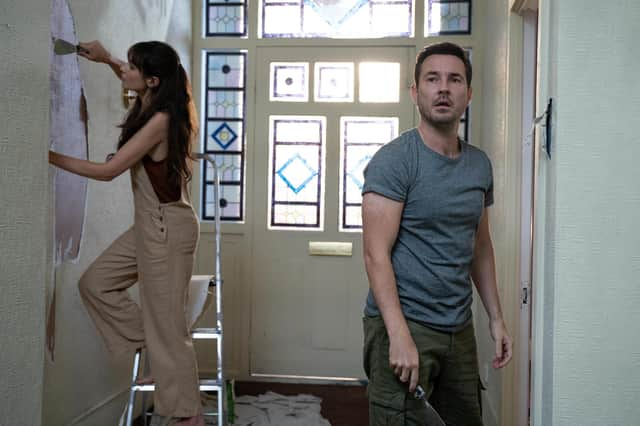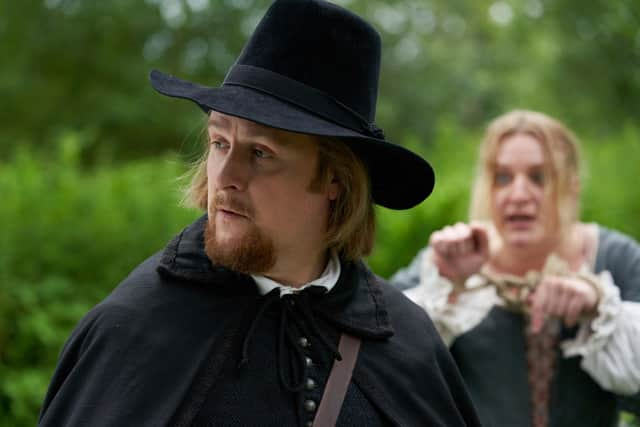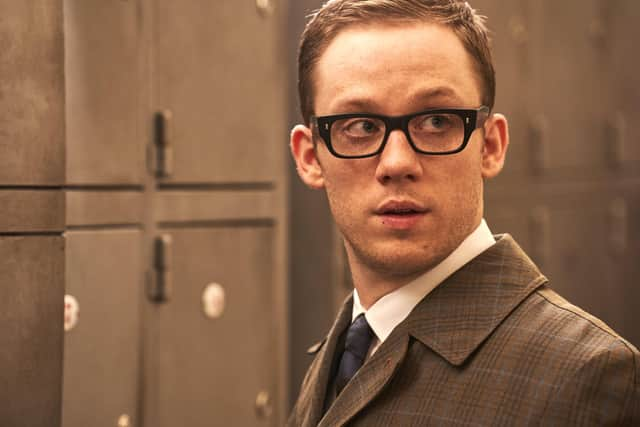Aidan Smith's TV week: Our House (ITV), The Ipcress File (ITV), The Witchfinder (BBC2)


These programmes are turning us into an acquisitive nation obsessed with wet rooms. We’re coveting thy neighbours’ bi-fold doors. We’re leaving no stone unturned to keep up with the Joneses - and then digging up even more of the garden to out-patio them.
What we need, I feel, are dramas brave enough to challenge the property porn mania. Which point out the dark side of painting walls nocturnal colours. And which prove beyond any doubt that no man is a kitchen island.
Advertisement
Hide AdOur House (ITV), which might be the first of them, is far from perfect but it’s here. Adapted from the thriller by Louise Candlish, it begins with Fi (Tuppence Middleton) returning to her home to find it’s been emptied of all possessions with new owners in situ. What a nightmare. But far-fetched? As the advance publicity for the four-parter demonstrated, this has happened for real.


The series then spins back ten years to when Fi and husband Bram (Martin Compston) were so happy they’d interrupt the DIY to frolic in paint-splattered overalls. Fi chose nocturnal colours. “My wife’s got an eye,” Bram remarks, and the dark blue certainly suits the general mood after she catches him bonking a neighbour in his shed.
She’s intent on divorce but, rather than sell the house and to maintain some continuity for their two young sons they decide on “bird-nesting” with each taking turns to live in a flat opposite while the other looks after the boys.
This is where the plot thickens. Bram causes a car to crash and leaves the scene of the accident but is spotted. As he’s being blackmailed, our couple briefly reconcile - we’re still in flashback mode here - but when Bram, needing cash, suggests they sell the house and take off for a year Fi is appalled: “House prices will go up. We’ll never find another place like this. All the years we put into it … ” “It’s just a house,” he says. “No,” she wails, “it’s the most perfect place!”
Odd name, Bram. Maybe it’s short for Bramble or Brahms or Brammer, good Scottish slang for something exceptional, which Our House unfortunately isn’t. Compston plays him as Scottish and he’s fundamentally decent, a good dad, who does a couple of (very) stupid things and gets in way over his head - quite literally in the tragic ending.


“I’m only interested in us,” he says when Fi’s determined to hold onto the house. “It’s not that simple,” she counters, and the thought occurs: does she want to re-decorate, go mad with rattan? Later she softens: “Maybe if I paid more attention to you, rather than all of this … ” By then, though, it’s too late.
Advertisement
Hide AdThe most frightening scene in the 1965 movie version of The Ipcress File - at least for me as a boy, watching on TV later - was Michael Caine being brainwashed. Strapped to a chair as doomy psychedelic special-effects swirled, he was told: “You will forget all about the Ipcress File.”
Well, I haven’t. Forgotten the film, that is. Which might have presented a challenge for ITV’s remake of Len Deighton’s Cold War spy thriller but, scripted by Glasgow-born John Hodge who penned the Trainspotting screenplays, it makes a cracking start. Cool and sexy, I’m hooked from the early scene of a boy engrossed in his Commando comic. That would have been me, back in the day, although I wouldn’t have known what “cool” meant, far less “sexy”.
Advertisement
Hide AdAnother challenge for the six-parter - looking at still photos of him - could have been Joe Cole as Harry Palmer. What is he, 12? Even younger than me when I saw the movie? You can’t take on the old Soviet Union with kids, and certainly not when they’re kidnapping our top nuclear scientist and bundling him into East Berlin.
But Cole doesn’t try to outdo Caine, blow the bloody doors off or anything (and I know that’s a line from another film). He’s cool although I wouldn’t say sexy, even if for openers he’s enjoying a post-coital ciggie while his German girlfriend takes a bath. Everyone smokes. Air flight is by BEA. And, best of all on the nostalgia front, chloroform secures the Russkies the bomb boffin.
Palmer is recruited to find him by Tom Hollander’s spymaster who reasons: “We can’t trust 5 or 6 on this - too many Commies.” (That’s MI5 and MI6 - come on, keep up). Hollander’s excellent and so’s Lucy Boynton as Palmer’s handler, who gives the impression she’d like to do this literally. Well, the fiance is a posh twit who tells her he’ll become so rich she won’t have to work anymore. “But what if I want to?” she scowls.
As The Witchfinder (BBC2) Alan Partridge punchbag Tim Key gets his own comedy, 17th century-set, but there seems no obvious upgrade in status. There are superstar witchfinders around but he’s not one of them. A rival sneers: “What have you got on today - someone else covered in eczema? A goat that cries like a baby? And remember that fruit-picker who had a demon in his hedge?”
Comments
Want to join the conversation? Please or to comment on this article.